Yunlong Deng
Should Bias Always be Eliminated? A Principled Framework to Use Data Bias for OOD Generation
Jul 22, 2025
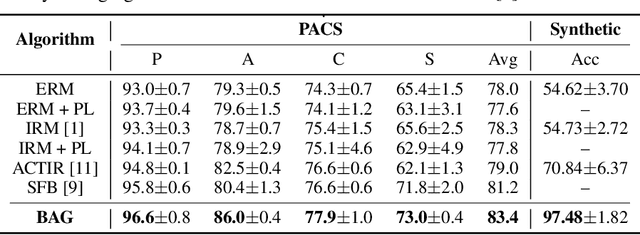
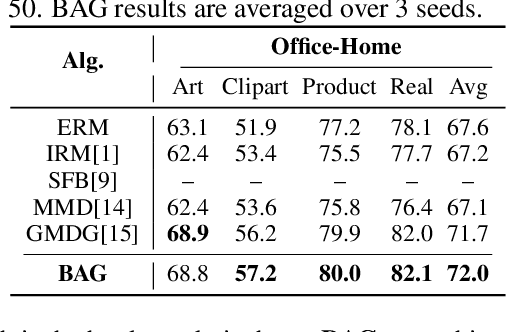
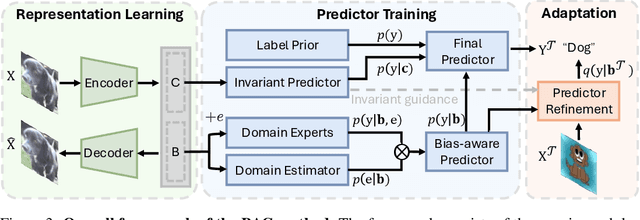
Abstract:Most existing methods for adapting models to out-of-distribution (OOD) domains rely on invariant representation learning to eliminate the influence of biased features. However, should bias always be eliminated -- and if not, when should it be retained, and how can it be leveraged? To address these questions, we first present a theoretical analysis that explores the conditions under which biased features can be identified and effectively utilized. Building on this theoretical foundation, we introduce a novel framework that strategically leverages bias to complement invariant representations during inference. The framework comprises two key components that leverage bias in both direct and indirect ways: (1) using invariance as guidance to extract predictive ingredients from bias, and (2) exploiting identified bias to estimate the environmental condition and then use it to explore appropriate bias-aware predictors to alleviate environment gaps. We validate our approach through experiments on both synthetic datasets and standard domain generalization benchmarks. Results consistently demonstrate that our method outperforms existing approaches, underscoring its robustness and adaptability.
Reflection-Window Decoding: Text Generation with Selective Refinement
Feb 05, 2025



Abstract:The autoregressive decoding for text generation in large language models (LLMs), while widely used, is inherently suboptimal due to the lack of a built-in mechanism to perform refinement and/or correction of the generated content. In this paper, we consider optimality in terms of the joint probability over the generated response, when jointly considering all tokens at the same time. We theoretically characterize the potential deviation of the autoregressively generated response from its globally optimal counterpart that is of the same length. Our analysis suggests that we need to be cautious when noticeable uncertainty arises during text generation, which may signal the sub-optimality of the generation history. To address the pitfall of autoregressive decoding for text generation, we propose an approach that incorporates a sliding reflection window and a pausing criterion, such that refinement and generation can be carried out interchangeably as the decoding proceeds. Our selective refinement framework strikes a balance between efficiency and optimality, and our extensive experimental results demonstrate the effectiveness of our approach.
Phocus: Picking Valuable Research from a Sea of Citations
Jan 14, 2022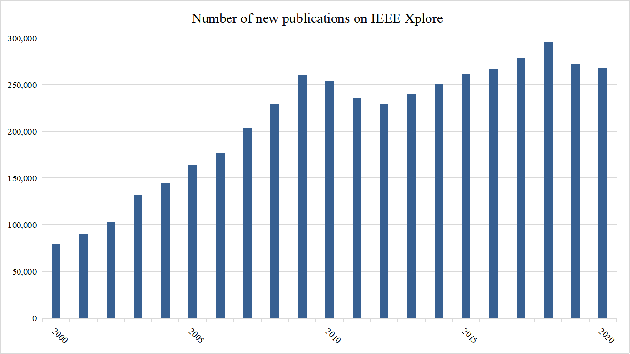
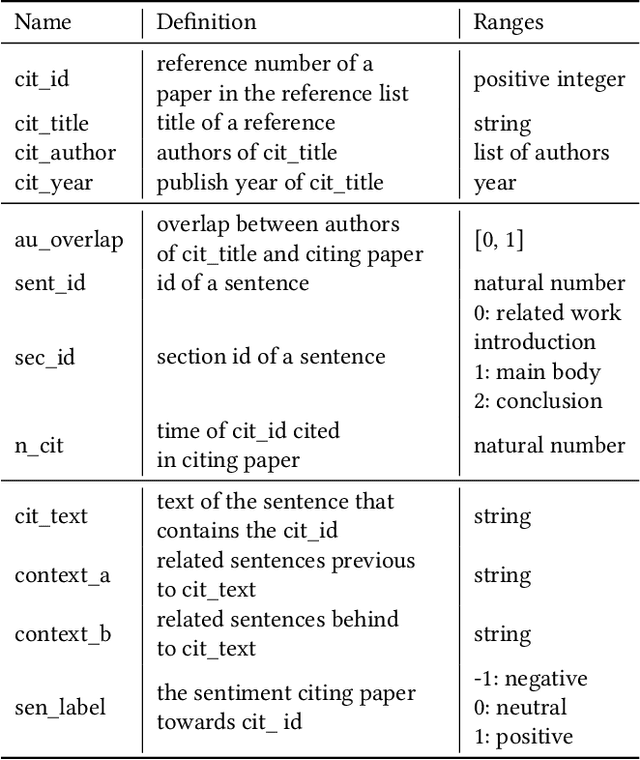
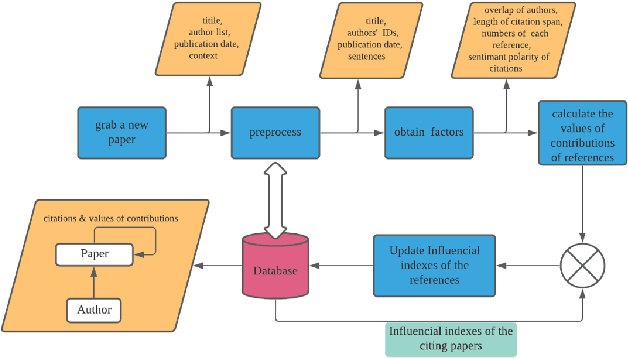

Abstract:The deluge of new papers has significantly blocked the development of academics, which is mainly caused by author-level and publication-level evaluation metrics that only focus on quantity. Those metrics have resulted in several severe problems that trouble scholars focusing on the important research direction for a long time and even promote an impetuous academic atmosphere. To solve those problems, we propose Phocus, a novel academic evaluation mechanism for authors and papers. Phocus analyzes the sentence containing a citation and its contexts to predict the sentiment towards the corresponding reference. Combining others factors, Phocus classifies citations coarsely, ranks all references within a paper, and utilizes the results of the classifier and the ranking model to get the local influential factor of a reference to the citing paper. The global influential factor of the reference to the citing paper is the product of the local influential factor and the total influential factor of the citing paper. Consequently, an author's academic influential factor is the sum of his contributions to each paper he co-authors.
 Add to Chrome
Add to Chrome Add to Firefox
Add to Firefox Add to Edge
Add to Edge